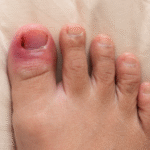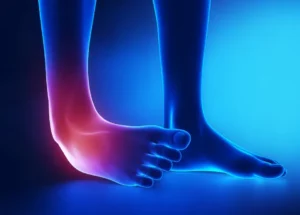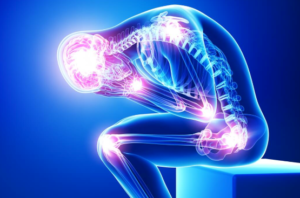Back pain that lingers for weeks or months can interfere with daily routines, work, and overall well-being. Effective chronic pain management offers practical solutions to reduce discomfort and improve mobility. From medical interventions to lifestyle adjustments, these approaches make back pain manageable. Here are four ways to ease chronic back pain and support long-term health:
Prioritize Gentle Movement
Movement plays a fundamental role in chronic pain treatment. Many people with back pain avoid physical activity, but gentle exercise actually helps reduce pain and improve function. Low-impact activities like walking, swimming, and stretching can strengthen muscles that support your spine.
Start with short sessions. Simple stretching exercises help improve flexibility and reduce muscle tension that contributes to pain. Physical therapy exercises target muscles that support your back. These exercises help build strength gradually while teaching proper body mechanics. A physical therapist can design a program that matches your specific needs and pain levels.
Use Pain Management Therapies
Various therapies can provide significant pain relief for chronic back conditions. Heat and cold therapy are simple yet effective methods for at-home use. Heat helps relax tight muscles and improve blood circulation, while cold therapy reduces inflammation and numbs pain signals. Massage therapy offers another helpful approach to pain management. Regular massage sessions often reduce muscle tension, improve circulation, and promote relaxation.
Professional treatments like acupuncture may also help with chronic pain management. This ancient practice involves placing thin needles at specific points on the body to help reduce pain signals. Transcutaneous electrical nerve stimulation (TENS) units provide another option by delivering mild electrical pulses that can interrupt pain signals traveling to your brain.
Improve Daily Habits and Lifestyle
Your daily habits impact chronic back pain. Adopting healthy practices in your daily routine can help reduce strain on your spine and improve pain management. Here are key areas to focus on for managing and mitigating chronic back pain:
- Maintain good posture: Good posture reduces strain on your spine and supporting muscles. When sitting, keep your feet flat on the floor and make sure your back is supported.
- Enhance sleep quality: Sleep directly affects pain levels and healing. Use a supportive mattress and maintain a proper sleeping position.
- Manage stress effectively: Stress exacerbates pain perception. Incorporate stress management practices such as deep breathing exercises, meditation, and progressive muscle relaxation.
- Focus on weight management: Carrying excess weight places added pressure on your spine and joints. Aim to adopt a balanced diet that includes anti-inflammatory foods to support your body’s natural healing processes.
A consistent focus on posture, sleep, stress reduction, and weight management can help improve your mobility, reduce pain levels, and support better health outcomes.
Seek Professional Guidance
Professional medical care is fundamental for effective chronic pain management. Pain specialists can evaluate your specific condition and develop comprehensive treatment plans. They may recommend medications, injections, or other interventional treatments that target the source of your pain.
Regular medical monitoring helps track your progress and adjust treatments as needed. Your healthcare provider can identify when treatments aren’t working effectively and suggest alternative approaches. They can also help you avoid medication interactions and manage side effects from pain treatments.
Schedule Your Chronic Pain Management Consultation
Managing chronic back pain requires a comprehensive approach that combines movement, therapy, lifestyle changes, and professional care. These four strategies work best when used together as part of an overall pain management plan. Contact a pain management specialist near you to schedule your consultation and take the first step toward better pain management.















